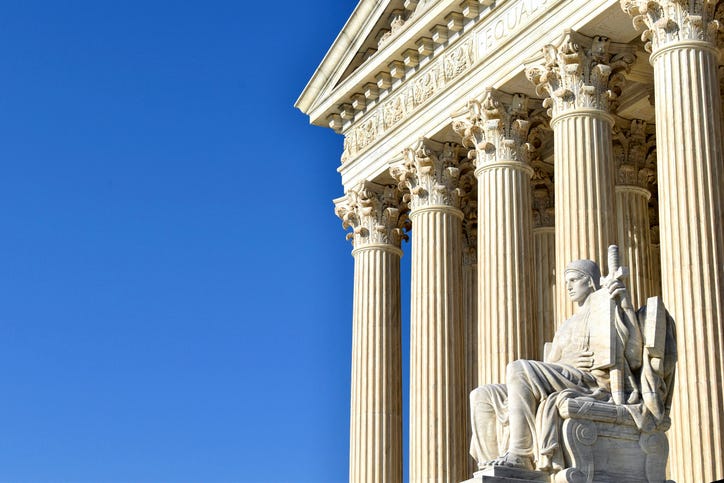
The United States Supreme Court ruled last week that a man did not have the First Amendment right to trademark the phrase “Trump Too Small,” which he wanted to use on hats and shirts he was selling.
The decision in Steve Elster’s case came on June 13 and now leaves some wondering how the justices will consider First Amendment cases moving forward despite ruling unanimously.
In his legal team’s arguments, Elster said that his application being denied improperly restricted speech was a violation of his First Amendment rights.
The trademark was denied because US trademark law prohibits registration incorporating a name “identifying a particular living individual except by his written consent.”
The Supreme Court ruled that Elster’s argument did not hold up, as the provision known as the “names clause” was constitutional. However, the justices diverged on their approaches to First Amendment analysis, which could lead to future split decisions on cases concerning free speech.
The justices agreed that the names clause regulated content and not viewpoints and that even though content-based regulations of speech are typically subject to a high level of scrutiny, it wasn’t the case with Elster.
However, the group seemed to diverge when it came to deciding whether or not trademark law was a First Amendment problem.
In the majority opinion, Justice Clarence Thomas wrote that the names clause was not a problem addressed by the First Amendment as several older cases stopped the registration of personal names as trademarks on “the notion that a person has ownership over his own name.”
While Justices Amy Coney Barrett, Ketanji Brown Jackson, Elena Kagan, and Sonia Sotomayor agreed with the majority’s decision, they did not agree with how Thomas and the other justices looked to history for the decision.
Instead, the justices focused on the trademark law’s purpose.
These justices wrote that trademark law was used to prevent confusion among consumers and to preserve trademark owners’ reputations and goodwill. They wrote that the name clause was legal because it was reasonable in the light of the law’s purposes, addressed in several other cases.
